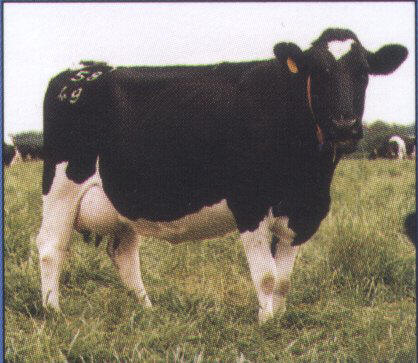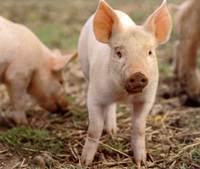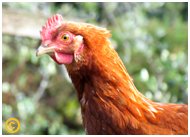Tony
Wilsmore is Director of VEERU. He has an outstanding academic and
practical record in the field of ruminant health and production. Before
coming to VEERU, he was Senior Lecturer at the Royal Veterinary College,
London where he directed the MSc course in Animal Health and developed a
successful research programme on the production and health of small
ruminants with special interests in the epidemiology of perinatal
disease, ectoparasites and vaccine development.
Within VEERU, he manages research projects and supervises studies for
higher degrees in animal health and veterinary epidemiology. He
organises and conducts short courses on control of transboundary
diseases, veterinary epidemiology and animal health economics.
Examples of recent courses held in UK are:
-
Training
course for field and laboratory staff of the Kosovo Veterinary &
Food Agency in surveillance, contingency planning and emergency
preparedness for Highly Pathogenic Avian Influenza (HPAI) and other
transboundary diseases;
-
Training
course for field and laboratory staff on Veterinary and Animal
Disease Control Mechanisms to assist the preparation of Government
of Croatia’s Foot and Mouth Disease (FMD) contingency plan.
Examples of courses held
outside UK are:
-
Diseases
of small ruminants and their control for the Faculty of Veterinary
Science, Haryana University, Ethiopia;
-
Two courses for Jordan Government Animal Health staff in
veterinary epidemiology and animal disease surveillance methods.
As Director of VEERU, Tony
has managed a number of studies for DEFRA. These have included:
-
Qualitative veterinary risk assessment of the introduction of rabies
into the United Kingdom in 2006
www.defra.gov.uk/animalh/diseases/notifiable/rabies/index.htm
-
Review of
the international evidence for an interrelationship between cattle
and wildlife in the transmission of bovine tuberculosis in 2005 (http://www.defra.gov.uk/animalh/tb/index.htm).
-
Catalogue
of UK veterinary and animal welfare regulations (which have
increased in complexity to conform with EU Common Agricultural
Policy) and ways to simplify the regulations and reduce the
administrative burdens they impose while maintaining effective
inspection and enforcement.
-
Team
Leader of a multidisciplinary group modelling the economic benefits
of different FMD control strategies. The study involved managing
teams in England, Scotland and Wales.
Tony divides his time between his research and teaching activities in
VEERU and consultancy and project management in developing and
transition countries. In this respect he has recently undertaken the
following:
-
Team Leader of a real-time evaluation of FAO’s role in control of
HPAI (2007);
-
Veterinary
Epidemiologist on a team undertaking a final evaluation of the Pan
African Control of Epizootics (PACE) Project (2006).
-
Team Leader on
the EU-supported Strengthening of Public Veterinary Services in
Kosovo Project (SPUVESEK). A project involving: development of an
identification and movement control system for cattle; surveillance
for, and prevention of transboundary diseases and zoonoses and
control of endemic diseases of livestock; safety and hygiene of food
of animal origin; drug and residue surveillance and control; Border
Inspection Post control; capacity building of veterinary diagnostic
services. Activities also involved developing veterinary
legislation to support the activities of the Kosovo Veterinary
Services that has legal approximation with EU veterinary acquis.
The work resulted in the promulgation of a Veterinary Act that
created the Kosovo Veterinary and Food Agency (KVFA), the
development of an Animal Welfare Act and regulations for the
identification and registration of livestock. Tony also helped the
CVO to develop a strategy for the KVFA. Other tasks included a €1
million procurement through European Agency for Reconstruction, for
software, hardware, PDAs, tags and equipment for an identification
and registration of livestock programme and laboratory equipment for
analysis of drugs and residues. Tony continued to backstop the
second SPUVESEK Project and was the project’s short term expert on
veterinary epidemiology (2003-2006).
In 2001, Tony Wilsmore was Team Leader of the mission that investigated
supporting measures to promote livestock marketing through live animal
export trade from the Horn of Africa into the Gulf countries.
This involved
animal identification, together with movement and health control.
During 1997-1998 Tony spent a year in India with the EU-assisted Project
to Strengthen Veterinary Services, where his main duty was to design a
programme for human resources development in the State Veterinary
Services. He has worked with commercial dairy companies in Saudi Arabia
and with small ruminants, cattle and yaks in Tajikistan.
Tony
Wilsmore has undertaken a series of long-term assignments in Kenya
(District Veterinary Officer), Ethiopia (Team Leader), Eritrea
(International Consultant) and Yemen (Team Leader and Acting Director of
Veterinary Services), and has also carried out many short-term
consultancies for international agencies and NGOs.
He was also the animal
health team leader of a DFID-funded project for the assessment of the
effect on the environment and on wildlife, and the socio-economic effect
of game control fences in Botswana and assisted the FAO Caribbean
Amblyomma Project.
Tony
Wilsmore has 15 peer reviewed publications as first author, 25 peer
review publications as a second author, and 24 other publications.



